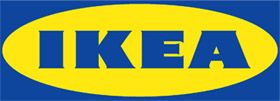 On Dec. 4, an Ikea ZIP code Class consisting of California consumers was decertified by the presiding federal judge, ruling that the plaintiffs failed to provide proof that Ikea USA West Inc. had violated the rights of the Class Members. Like many similar lawsuits currently in litigation, the Ikea ZIP code class action lawsuit alleges the retailer illegally requested and stored consumers’ ZIP codes when using a credit card to complete their purchase.
On Dec. 4, an Ikea ZIP code Class consisting of California consumers was decertified by the presiding federal judge, ruling that the plaintiffs failed to provide proof that Ikea USA West Inc. had violated the rights of the Class Members. Like many similar lawsuits currently in litigation, the Ikea ZIP code class action lawsuit alleges the retailer illegally requested and stored consumers’ ZIP codes when using a credit card to complete their purchase.
According to U.S. District Judge Cynthia Bashant, plaintiff Rita Medellin could not demonstrate how Ikea had violated California consumer law by making it standard practice for their retail cashiers to ask for ZIP code information because there is allegedly no evidence to support her claims. After excluding arranged Ikea home deliveries, Ikea installation, and other situations in which Ikea employees could and did collect consumers’ ZIP codes without violating California Song-Beverly Credit Card Act of 1971, Medellin could not point to any specific evidence that the ZIP code allegations had occurred outside of the plaintiffs’ personal experience.
In her memorandum decertifying the Ikea ZIP code Class, Judge Bashant stated:
“The single anecdote of plaintiff’s own transaction does not establish what occurred in other transactions. This failure of proof undercuts the ground upon which certification of the class was initially granted and decertification was denied. And without a common answer to the threshold question of whether ZIP codes were uniformly requested and recorded, none of the other issues is sufficiently important to convince the court that the most efficient method of determining the rights of the parties is the continuation of this action as a class action.”
Judge Bashant’s ruling struck a huge blow to the already shrunken Ikea ZIP code Class. During 2013 court proceedings, another federal judge had trimmed the California consumer Class (which had originally been certified in 2012), though simultaneously denied Ikea’s motion for partial summary judgment.
According to the Ikea ZIP Code class action lawsuit, the furniture retailer had allegedly instituted the ZIP code policy to determine where new Ikea stores should be built. Ikea employees were instructed to ask consumers for their ZIP code information during a cashier transaction and then store this ZIP code in the same transaction log.
However, these same cashiers were also allegedly told that the ZIP code collection was voluntary and that it could be circumvented by entering “00000” in the required information field. At self-check kiosks, a consumer was given the choice to decline if they wished to not provide their ZIP code information. Eventually, Ikea allegedly discontinued the ZIP code collecting policy when it became apparent that ZIP code collecting was unreliable.
While Judge Bashant has decertified the Ikea ZIP code Class, individual plaintiffs may still be able to pursue individual claims against the popular retailer, since the judge pointed out that a lack of class-wide proof of the ZIP code allegations does not rule out whether an individual customer’s rights were violated during a retail transaction.
The plaintiffs are represented by Timothy G. Blood, Paula M. Roach, Leslie E. Hurst and Thomas Joseph O’Reardon II of Blood Hurst & O’Reardon LLP, and Gene J. Stonebarger and Richard D. Lambert of Stonebarger Law APC.
The Ikea ZIP Code Class Action Lawsuit is Yeoman, et al. v. Ikea USA West Inc., et al., Case No. 3:11-cv-00701, in the U.S. District Court for the Southern District of California.
ATTORNEY ADVERTISING
Top Class Actions is a Proud Member of the American Bar Association
LEGAL INFORMATION IS NOT LEGAL ADVICE
Top Class Actions Legal Statement
©2008 – 2026 Top Class Actions® LLC
Various Trademarks held by their respective owners
This website is not intended for viewing or usage by European Union citizens.















One thought on Ikea ZIP Code Class Action Decertified by Calif. Judge